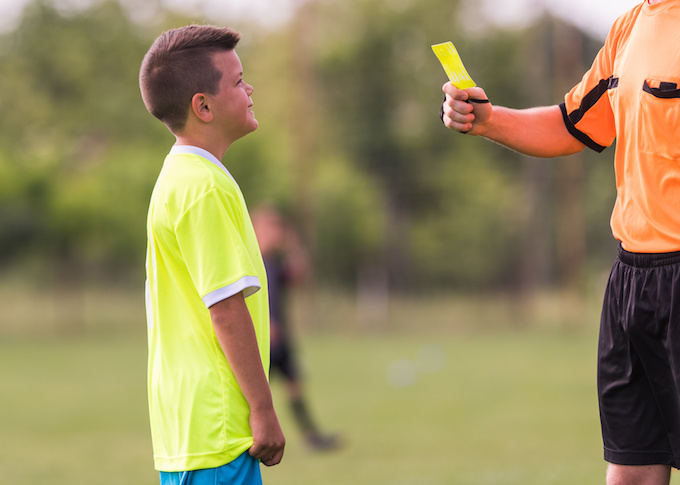
Research indicates that the number of young people presenting for help for self-harm behaviour is increasing. According to the Growing Up in Australia Longitudinal Study of Australian Children, non-suicidal self-injury is a concern in young people as it often goes undetected and official statistics are likely to under-represent the extent of self-harm as they record hospitalised injuries only.
However, almost 1 in 5 young people have self-harmed at some point in their high school experience, while almost 1 in 3 have thought about it.
Read the Term 3 edition of School News HERE
Michelle Mitchell is a former teacher who founded the Youth Excel Centre, a multi-disciplinary centre offering psychology and mentoring services for children and teens. She has written a practical guide for parents and educators on the subject of self-harm that is designed not only to support the child, but equip the adult for what can be a distressing conversation.
“Reassure [the] child that you don’t think they are a failure because they are having difficulties. Some of the most brilliant minds in the world had moments of significant struggle. This may be the first time in their lives they have felt such deep and overwhelming emotions, and they don’t yet have the maturity to know that people can get through such times.” Michelle Mitchell
It’s important that the narrative around self-harm is changed, particularly in schools, where it is often framed as a negative behaviour. If a student thinks they will get in trouble for something, they are less likely to reach out and seek support.
What is self-harm?
“Non-suicidal self-harm is when someone deliberately hurts themselves in an attempt to express or control or cope with emotional pain,” says Mitchell. “It can also be a form of self-punishment. Self-harm methods can be wide and varied – ranging from risk-taking to self-injury – which also makes them difficult to identify and report.”
“I like to explain self-harm as the destructive thinking that leads people to all sorts of destructive behaviours. It is the intention behind self-harm that defines it rather than the behaviour itself.” Michelle Mitchell
The reasons why people choose to harm themselves are varied, but Mitchell points out that another way to think about self-harm behaviours is as a “coping strategy that can quickly shift energy and mood, and taps into someone’s biological state impacting the psychological one.” In other words, it can transfer emotional pain into physical pain, which can feel like a temporary relief, although she states “Ultimately, it’s unhelpful and doesn’t solve problems.”
Reframing self-harm as a coping strategy may help shift the conversation, and help young people access support and talk about their difficulties.
The warning signs teachers might notice include unexplained marks on the body, a change to wearing long sleeves or baggy clothing, wearing wide wrist bands or jewellery, picking at scabs, mood changes, a drop in grades and avoiding situations where arms and legs might show such as swimming or sports.
According to the Growing Up in Australia survey, risk factors for self-harm include being same-sex attracted, having elevated depressive symptoms, experiencing bullying, anxiety and poor sleep. Thoughts and acts of self-injury are higher in girls than boys.
For families, friends and teachers, self-harming can be frightening to witness but it is still a topic that is not openly discussed. Few people have any real idea of what to say or how to help, but the greater support and understanding we can provide for adults, particularly those who have not encountered the behaviour before, the greater benefit it will be to all students’ mental health.
What can teachers do if they suspect or witness a student self-harming?
Mitchell notes that schools are often high-pressure, fast-paced and very public environments which make private conversations very difficult and puts pressure on caring teachers to find appropriate ways to connect.
She makes the following suggestions:
- Teachers should ask themselves: am I this child’s go-to person within the school? If not, perhaps pass on your concerns to the person that is. Most kids have a few teachers they connect well with.
- Ask to see them privately outside of your regular contact time and not after class where kids will be waiting back to see what the teacher wanted. Also speaking in the corridor while friends are around doesn’t usually go well!
- Always reframe attention seeking to indicate connection seeking, protection seeking and understanding seeking.
- Try initiating a conversation by saying:
- I am concerned about you…
- Who do you feel most comfortable talking to…
- How can I support you…
- What do you need from me?
- Know where you want to lead the conversation – what is the next step for them? And acknowledge their choice and independence within this.
- Leave the conversation open to check back in with them. Don’t let it be the last conversation.
She also warns about the things that may repel young people: “Judgement or criticism, over-reactions, insensitivity, and pushing for confessions” are all things that might prevent students from feeling comfortable and safe enough to make a connection. “It’s so important to honour independence unless there is an overarching concern,” she adds.
It should be noted that while teachers are not expected to take on the professional/counselling aspects of caring for a student who self-harms, their constant and non-judgemental presence will be an essential element of support for the child.
Should self-harming be discussed at school?
On her website, Mitchell points out that this generation of children are highly educated regarding mental health, and more likely to talk openly about topics like self-harm than our generation ever was.
“[But] there is an element of contagiousness with all emotions, and research does indicate a copy-cat element within social groups and digital communities,” warns Mitchell. “I prefer to talk about self-care rather than self-harm, as that is the primary way to help. People who self-harm have often forgotten how to care for themselves.”
All schools should have a policy on self-harm that guides educators on how to talk with students, their parents and other students, but also should outline the ways staff will be trained and supported.
Raising awareness and letting young people know they are not alone is an essential way of proactively caring for students. However, Mitchell reminds educators (and adults and friends) to be mindful of their own mental and emotional health. “Peer support is a good place to start,” she says, “and don’t extend yourself beyond what you can handle.”







